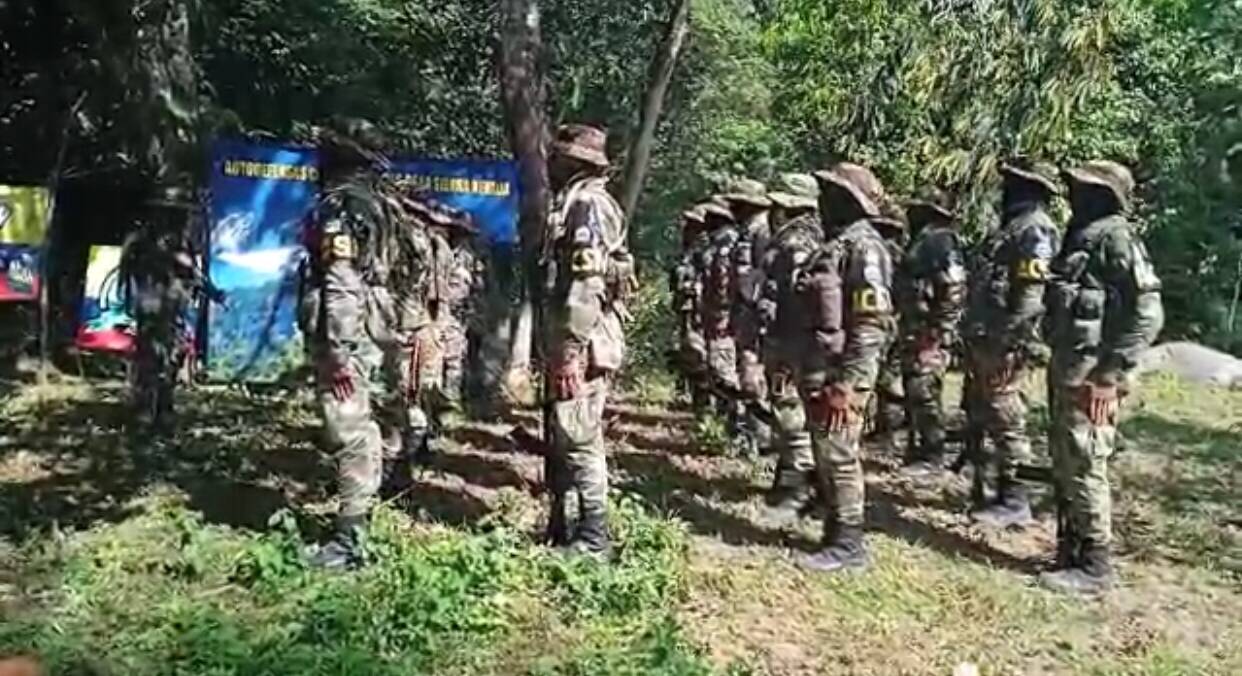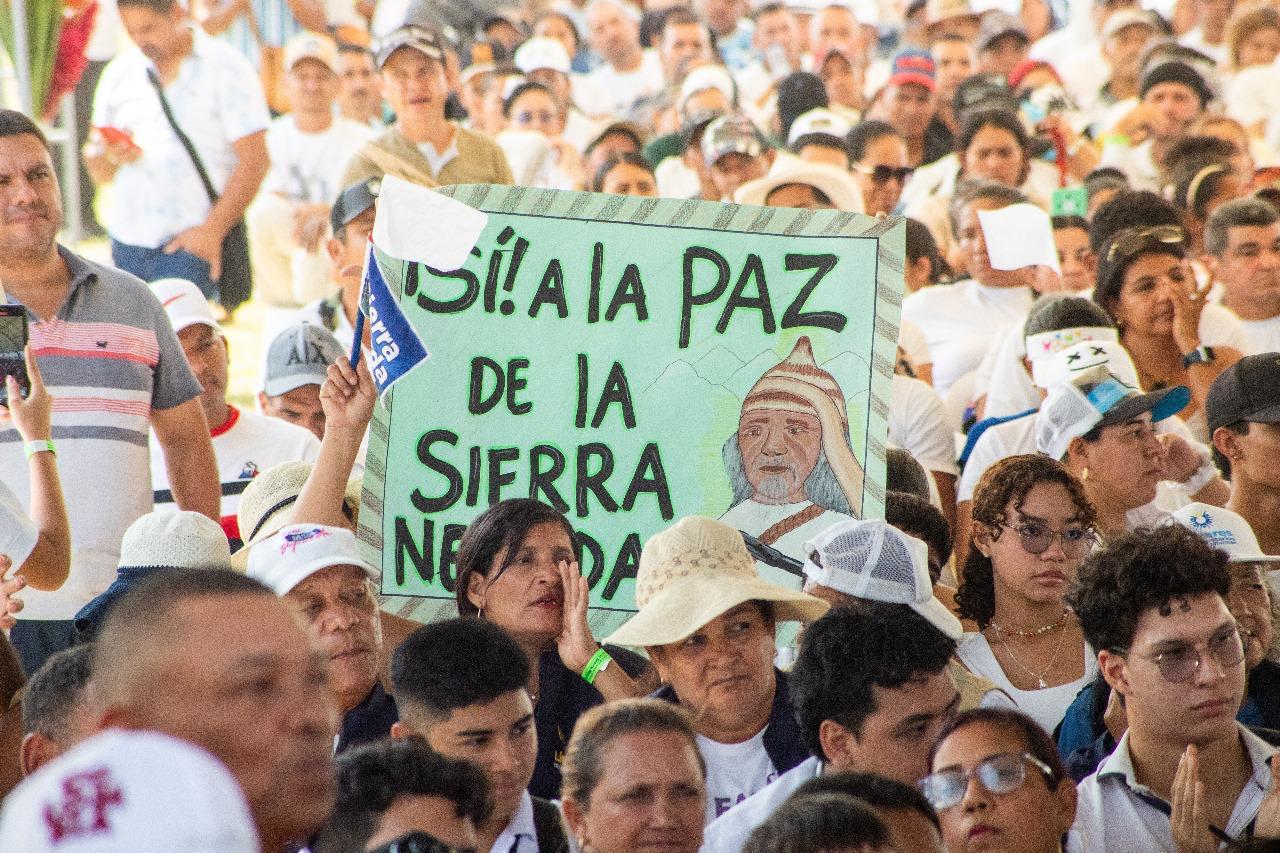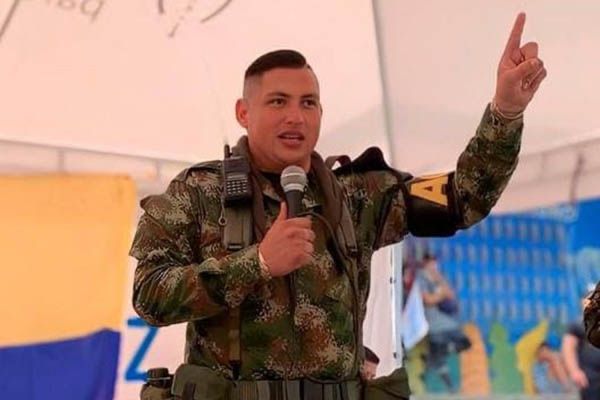'The intention is that at the end of the process the group will cease to exist': Government on ACSN

Although there is no definitive date for the start of the socio-legal conversation space with the Self-Defense Forces Conquistadores de la Sierra Nevada (ACSN) , Óscar Mauricio Silva, the man delegated by the Executive to advance the approaches, spoke with EL TIEMPO about the approach and some of the issues that will be put on the table once the Government installs peace talks with the criminal organization that emerged after the demobilization of the Tayrona Block of the Self-Defense Forces.
What are the conclusions of the rapprochement phase? Why make the announcement now, six months after the publication of the resolution authorising the roundtable? Since Resolution 300 of 2024 issued by the President of the Republic, where we are designated as a delegation to verify and initiate the rapprochement with the group and the generation of trust, we have had a rather silent but quite productive work with the group and we have made contacts with all the institutions that would have to do with the transformation of the territory. Once this phase has been evaluated, the National Government makes the decision to start the process in earnest and then what we announce is that decision. The announcement is basically to advance a peace process in the Sierra Nevada de Santa Marta.
Is there an estimated date for the space to be installed? We will have that news very soon, it is a topic that is being discussed. As I said, we are moving forward with certain steps, but at this moment I cannot give you an exact date.

According to intelligence figures, they have around 1,000 members. Photo: Screenshot of video
Yes, in relation to the group, which is part of the process, of course. We have confirmed the will to transform the territory; the will is that at the end of the process the group will cease to exist. Let us remember that, according to Law 2272, this is a socio-legal process. In addition, this is also about initiating a de-escalation of the issues of violence. In relation to what is important in today's peace, which is the transformation of the territory, we are going to begin next week the dialogues with the people who inhabit the territory to begin the transition of the region to the social state of law.
You talk about the end of that group as an armed organization. What will that process be like? That is why these years of rapprochement, and especially this last one, have been so important. We do not want frustration, of course, and neither do they. We have a clear agreement regarding the transformation of the territory, we know that we must take that step and who must do it is the territory itself, the national and regional institutions that participate there, as well as the group. So, in that sense, we are very optimistic that this space will be a real and certain process. We have made a lot of progress and that is why the president has made the decision to enter into this process. We want and believe that both the communities that live there and the group are committed to moving this process forward.
How does this armed group operate today in the Sierra Nevada? The Self-Defense Forces of the Sierra Conquistadoras have their genesis more than 45 years ago. In this territory of the Sierra Nevada of Santa Marta, governance has been exercised for a long time, that is no secret to anyone. Today we see the possibility of making that transition to the rule of law. That is to say, the only way for there to be peace there is for the State to be present. And not only the presence in terms of security, which is fundamental, it also has to change the lives of the inhabitants of the territory. That is the clarity of the process. The genesis is 45 years of that governance, of domination and of a state absence. So we have to recognize that this is the case and that today we are embarking on this path so that this territory once again belongs to Colombia.
What is the situation today for the Sierra communities in the face of the war between this group and the 'Gulf Clan'? It is very important to be clear about the conflict we are experiencing today in Colombia. In this country, we have always talked about armed conflict, but the nature of this conflict today is no different than in 2016. Today we have a conflict that is like a sum of territorial violence for the control of many illegal businesses, for the profits from those businesses, through the domination of the population. Violence is that concrete, therefore, peace has to be just as concrete.

The announcement of the roundtable was made at the International Forum for Peace, in the district of Guachaca. Photo: Roger Uriles
In this case, it is a process that is born with that clarity, with the clarity that it is limited to a specific territory, that there is a specific violence and that we can overcome that violence. So, we have to understand very well what is the determinant of violence: today it is not the seizure of power, it is the control of territories. And, in effect, we have a problem there because we have the 'Gulf Clan' lurking. We have to, in the State's decisive action to make a transition from that territory to a social state of law, reinforce security, guarantee that the effort is not damaged by any other group that wants to supplant those who today have the decision for peace, those who today want to walk that path.
What alternatives have been discussed regarding the transition to civilian life of the members of this armed organization, taking into account that today the country does not have a legal tool for this purpose? It is an issue that concerns all those who are in charge of a process. Law 2272 (total peace) is the framework that allows us to move forward, but we are working hand in hand with the Attorney General's Office and with very robust teams of legal experts to find alternatives. For us, it is essential that ordinary justice emerges from this strengthened, because ordinary justice is what concerns us all, it is what guarantees that the law is complied with in Colombia. We do have to make legislative progress, we are working on a large number of formulas and throughout the process we will enter into discussion of these issues as well. It is a difficult issue like all those that have to do with achieving peace, but they are not insurmountable issues. We are confident that Colombia can move towards peace, that it can move towards the rule of law.
Is one of these alternatives the modification or extension of the Justice and Peace Law, as has been proposed in other spaces of dialogue? This is one of the possibilities, an extension or work on it. This has generated a lot of noise and, of course, it is part of all the alternatives that are being reviewed at the moment.
There are 18 months left for this Government to complete its mandate. What is the objective between now and 7 August 2026? The fundamental goal is for this process to be irreversible. The goal is for the transformation of the territory to be irreversible because the transition to the rule of law is something that is always there, but that can only be achieved by making the other issues irreversible. In other words, we need the communities to be a force for peace that recognizes and takes ownership of the process. It is possible to do that in these 18 months, we are sure that we will do it.

César Gustavo Becerra Gómez, alias Camilo, main leader of the ACSN. Photo: PRIVATE ARCHIVE
Speculating about futurology is a very complicated subject. This is a topic for discussion, we have to look at reality, we have to look at the issues with the Attorney General's Office and we have to review them, of course, with the group. Of course, we have a range of possibilities. I understand the group's aspiration and we are going to work, but speculating about how the end will be, I think, does not help the process at all.
When will the next communication with them be to prepare the installation of the table? We have direct communication, so we are in constant contact. As I said, we have a discreet exercise of great care and security so that we do not have problems, but everything is absolutely within the institutional channels and with the knowledge of the Public Force. This communication is permanent and this communication will be maintained and we will soon announce the times of the negotiation.
CAMILO A. CASTILLOPolitical EditorX: (@camiloandres894)
eltiempo






